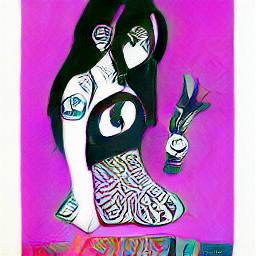Welcome to baby Marxist rehabilitation camp.
We are reading Volumes 1, 2, and 3 in one year. (Volume IV, often published under the title Theories of Surplus Value, will not be included in this particular reading club, but comrades are encouraged to do other solo and collaborative reading.) This bookclub will repeat yearly until communism is achieved.
The three volumes in a year works out to about 6½ pages a day for a year, 46⅔ pages a week.
I'll post the readings at the start of each week and @mention anybody interested. Let me know if you want to be added or removed.
Congratulations to those who've made it this far. We are almost finished the first three chapters, which are said to be the hardest. So far we have just been feeling it out, now is when we start to find our stride. Remember to be methodical and remember that endurance is key.
Just joining us? It'll take you about 4-5 hours to catch up to where the group is.
Week 3, Jan 5-21, we are reading Volume 1, Chapter 3 Section 3 'Money', PLUS Volume 1, Chapter 4 'The General Formula for Capital', PLUS Volume 1, Chapter 5 'Contradictions in the General Formula'
Discuss the week's reading in the comments.
Use any translation/edition you like. Marxists.org has the Moore and Aveling translation in various file formats including epub and PDF: https://www.marxists.org/archive/marx/works/1867-c1/
Ben Fowkes translation, PDF: http://libgen.is/book/index.php?md5=9C4A100BD61BB2DB9BE26773E4DBC5D
AernaLingus says: I noticed that the linked copy of the Fowkes translation doesn't have bookmarks, so I took the liberty of adding them myself. You can either download my version with the bookmarks added, or if you're a bit paranoid (can't blame ya) and don't mind some light command line work you can use the same simple script that I did with my formatted plaintext bookmarks to take the PDF from libgen and add the bookmarks yourself.
Resources
(These are not expected reading, these are here to help you if you so choose)
-
Harvey's guide to reading it: https://www.davidharvey.org/media/Intro_A_Companion_to_Marxs_Capital.pdf
-
A University of Warwick guide to reading it: https://warwick.ac.uk/fac/arts/english/currentstudents/postgraduate/masters/modules/worldlitworldsystems/hotr.marxs_capital.untilp72.pdf
-
Reading Capital with Comrades: A Liberation School podcast series - https://www.liberationschool.org/reading-capital-with-comrades-podcast/
Qualitatively or formally considered, money is independent of all limits, that is it is the universal representative of material wealth because it is directly convertible into any other commodity. But at the same time every actual sum of money is limited in amount, and therefore has only a limited efficacy as a means of purchase. This contradiction between the quantitative limitation and the qualitative lack of limitation of money keeps driving the hoader back to his Sisyphean task: accumulation. He is in the same situation as a world conqueror, who discovers a new boundary with each country he annexes.
And so it begins
reporting in for posting duty o7
currently making a word document with quotes ive highlighted in my copy of capital, as well as terms/concepts explained in previous threads here
do i get an extra sticker in my communist homework book?

@invalidusernamelol@hexbear.net @Othello@hexbear.net @Pluto@hexbear.net @Lerios@hexbear.net @ComradeRat@hexbear.net @heartheartbreak@hexbear.net @Hohsia@hexbear.net @Kolibri@hexbear.net @star_wraith@hexbear.net @commiewithoutorgans@hexbear.net @Snackuleata@hexbear.net @TovarishTomato@hexbear.net @Erika3sis@hexbear.net @quarrk@hexbear.net @Parsani@hexbear.net @oscardejarjayes@hexbear.net @Beaver@hexbear.net @NoLeftLeftWhereILive@hexbear.net @LaBellaLotta@hexbear.net @professionalduster@hexbear.net @GaveUp@hexbear.net @Dirt_Owl@hexbear.net @Sasuke@hexbear.net @wheresmysurplusvalue@hexbear.net @seeking_perhaps@hexbear.net @boiledfrog@hexbear.net @gaust@hexbear.net @Wertheimer@hexbear.net @666PeaceKeepaGirl@hexbear.net @BountifulEggnog@hexbear.net @PerryBot4000@hexbear.net @PaulSmackage@hexbear.net @420blazeit69@hexbear.net @hexaflexagonbear@hexbear.net @glingorfel@hexbear.net @Palacegalleryratio@hexbear.net @ImOnADiet@lemmygrad.ml @RedWizard@lemmygrad.ml @joaomarrom@hexbear.net @HeavenAndEarth@hexbear.net @impartial_fanboy@hexbear.net @bubbalu@hexbear.net @equinox@hexbear.net @SummerIsTooWarm@hexbear.net @Awoo@hexbear.net @DamarcusArt@lemmygrad.ml @SeventyTwoTrillion@hexbear.net @YearOfTheCommieDesktop@hexbear.net @asnailchosenatrandom@hexbear.net @Stpetergriffonsberg@hexbear.net @Melonius@hexbear.net @Jobasha@hexbear.net @ape@hexbear.net @Maoo@hexbear.net @Professional_Lurker@hexbear.net @featured@hexbear.net @IceWallowCum@hexbear.net @Doubledee@hexbear.net @Bioho@hexbear.net @SteamedHamberder@hexbear.net @Meh@hexbear.net
Well, I managed to finish chapter 2 since last time. Not much to say except that I should've started reading Capital a lot sooner, and I'm gonna need to read like chollima to keep pace.
Really feels like we're at the heart of Marx's disagreement with liberal economics here in these chapters. He's just listing things I learned in economics classes as examples of stupid things people say.
Marx: "Here's why libs and their ideas suck."
Those libs: "Yeah, uh, don't read that Das Kapital book. It's, uh, way too hard for you to understand. And it's outdated. And like, capitalism is really good. And Marx killed a billion people in gulags. Did you know that Marx failed to consider the difference between price and value?"
- Show"Ah, Superintendent Chalmers, welcome. I hope you're prepared for an unforgettable consumption of commodities!"
 Show"Commodities are not the terminating object of the trading capitalist, money is his terminating object."
Show"Commodities are not the terminating object of the trading capitalist, money is his terminating object."
(Chapter 4, footnote 7 - Fowkes p.254)
Going through pretty slowly and taking notes but I'm getting there and am determined to stick with it until the end
It's funny: people say Chap 1-3 are "hard", and right on the 1st page of Ch.4 I found myself thinking "yep, this is easier"
It'll get even easier as the book goes on, generally. Part one is especially dense because Marx wanted to make sure basically* everything in the book is deducible from the (extremely abstract) principles lain down in part 1. I can't remember offhand who in these threads pointed it out, but he even smuggles the labour-power / labour differentiation into part 1. Stuff becomes increasingly concrete from here on (especially in ch10 and ch15) as Marx shows how all the abstract principles of part 1 play out in real life.
*part 8 is something of an exception, but this is intentional on Marx's part (he's very explicit that primitive accumulation takes place outside the regular laws of capitalist production and so does not follow from the laws of part 1-7)
Yeah breezed through it in one sitting, which has not been the case thus far. Grateful for the reprieve honestly.
It's interesting how he hasn't explicitly mentioned dialectics or Hegel, but you can see his style of constant thinking is constantly about dualities.
He has mentioned Hegel though, a few times in footnotes and at least once in the text itself so far.
I'm not versed on Hegel or dialectics, so I don't know what to look out for when he's invoking that. Is it just contradictions in systems?
It's dualities.
A commodity has TWO values: use-value and exchange-value.
The transaction has TWO parties: buyer and seller.
The C-M-C circulation is something shifting between TWO phases over and over again.
You can see his mind keeps doing this with each idea:
Show
 <---- me waiting for the capitalists to "give back voluntarily the greater part of the profit in order to begin the game again"
<---- me waiting for the capitalists to "give back voluntarily the greater part of the profit in order to begin the game again"(chapter 4 footnote 4, Fowkes p. 251)
Summarising everything so far:
Things have use-value (comes in all kinds) and value (differs only quantitatively)
The amount of value in a thing is the average amount of labour-time needed to make it.
To trade things is to trade things of equal quantities of value. Obviously you need to do this sometimes because you require various use-values.
Any commodity's value can be expressed in terms of other commodities. A diamond is as good as three slaves, 5000 yards of linen, a million tons of manure. Money is one particular fungible commodity that is used as a measuring stick.
Because barter is inconvenient, every commodity gets swapped for money (selling), then money gets swapped for every commodity (buying).
But then people stop caring about trading for use-values / to fulfill needs. Money becomes an end in itself. They trade in order to grow their supply of money. Money is called capital when it's used in this way.
I went to the bookstore on Saturday and bought a physical copy (Penguin edition). Worth every yard!
Admittedly? Still on the prologue of the Penguin edition.
I forgot we were reading 6 and a half pages a day.
The capitalist knows that all commodities, however scurvy they may look, or however badly they may smell, are in faith and in truth money, inwardly circumcised Jews, and what is more, a wonderful means whereby out of money to make more money.
This part should honestly have a [TN: it's a bible reference], it has pretty bad vibes if you don't know that. It's even worse in some other translations.
I think it’s from one of Paul’s epistles. There are references in the Torah and Prophets to “a circumcised heart” and “uncircumcised lips” conveying purity and legitimacy.













